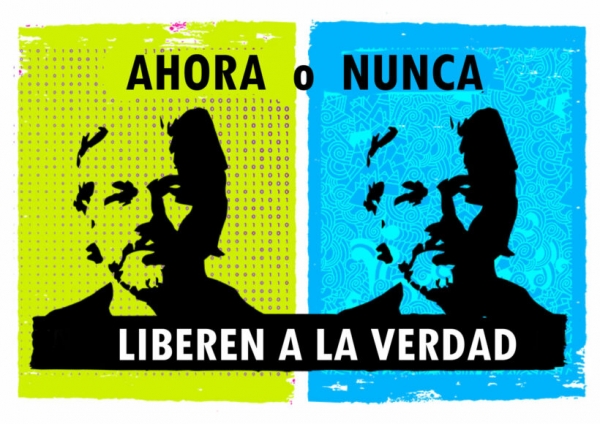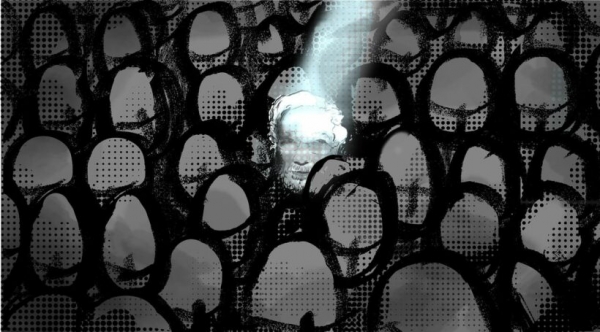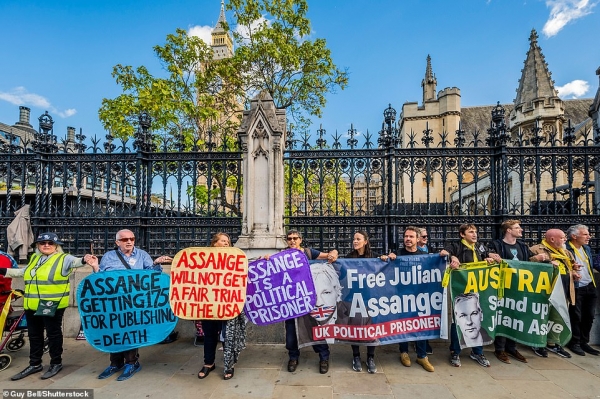
“No to extradition, Freedom to Julian Assange!” is an international letter delivery event by a group of Argentinean activists to the UK ambassador, coordinated by “Free Assange Argentina” and “Free Assange Wave” in cooperation with the Nordic collective www.setjulianfree.org.
On Saturday 19 August at 12 noon at the UK embassy (Luis Agote 2412 in Buenos Aires), two letters will be delivered to the UK ambassador demanding “No to extradition! “and “Freedom for Julián Assange! This event is in response to a call launched by the “Set Julian Free” collective from Norway for the same letters to be delivered globally in different cities around the world. The decision of the British High Court is imminent, which will accept or not in a few weeks the request to appeal the extradition decision to the USA where he could face 175 years in prison.
The scope of the global action for now is limited to two spearhead countries: Norway and Argentina. Others will follow suit in the coming weeks.

The action consists of handing over a letter written by Chris Hedges, a Pullitzer Prize-winning American journalist and defender of Julian Assange’s cause. “There will be no freedom of the press if there is no freedom for Julian Assange”, says Hedges in his text. In Oslo, the referents involved are the actress Liv Ullman and other personalities of the Scandinavian nation.
In Argentina, a group of representatives will present two letters: Hedges’ letter and another of their own, signed by human rights, political and cultural personalities. “The United Kingdom has the sovereign possibility to set an international precedent in the defence of Press Freedom as a fundamental Human Right”, they say in the letter. Once the letters have been delivered, a press conference will be held outside the embassy.
Adolfo Pérez Esquivel, Iris Pereyra de Avellaneda, Ricardo Peidro, Marta Maffei, Javier “el profe” Romero are confirmed.
Attendance subject to agenda: Cristina Fernandez de Kirchner, Eugenio Zaffaroni, Tristán Bauer, Giselle Santana, Abuelas de Plaza de Mayo.
This event inaugurates a series of actions for Assange’s freedom, such as the film series “Assange Libre” which will begin on 26 August at 4pm at the CCK. Other actions will follow, culminating in a demonstration in the Plaza de Mayo on D-Day, date unknown, when the High Court will decide Julian’s fate. We will be there to add our resistance for him, and for our right to be informed with the truth.

U.S. OFFICIAL HINTS AT POSSIBLE PLEA DEAL FOR JULIAN ASSANGE
The U.S. ambassador to Australia said there could be a “resolution” to the Justice Department’s pursuit of Assange.
US is considering a plea deal that would allow WikiLeaks founder and whistleblower Julian Assange to return to Australia, the Sydney Morning Herald reported Monday.
U.S. Ambassador to Australia Caroline Kennedy told the Morning Herald that there could be a “resolution” to Assange’s now-four-year detention in Britain. Assange, an Australian citizen, has been held in a London prison since 2019 while combating U.S. extradition efforts. He faces 18 criminal charges in the U.S., 17 of which allege violations of the Espionage Act.

Kennedy’s comments come weeks after U.S. Secretary of State Antony Blinken rebuffed Australia’s calls to end the prosecution against Assange. After a July meeting with Australian Foreign Minister Penny Wong in Brisbane, Blinken said the whistleblower was “charged with very serious criminal conduct” for his role in publishing classified American government materials. The files Assange shared in 2010 included footage of a U.S. airstrike in Baghdad that killed 18 civilians — including journalists — and hundreds of thousands of field reports from the Iraq War.
“There is a way to resolve it,” Kennedy said on Assange’s detention, adding that a plea deal would be “up to the Justice Department.” The Department of Justice declined to comment. The State Department did not respond to The Intercept’s request for comment.
“The administration appears to be searching for an off-ramp ahead of [the prime minister’s] first state visit to DC in October,” Gabriel Shipton, Assange’s brother, told The Intercept. “If one isn’t found we could see a repeat of a very public rebuff delivered by Tony Blinken to the Australian Foreign Minister two weeks ago in Brisbane.”
![Stella Morris the wife of Julian Assange talks to the media outside Westminster Magistrates' Court in London, in April 2022. [Morning Star]](/news/photo/202308/142205_132538_5656.jpg)
Dan Rothwell, an international law expert at Australian National University, told the Morning Herald that he believes a likely outcome would involve American authorities downgrading the charges against Assange in exchange for a guilty plea, while taking into account the four years he has already spent in prison.
In May, Kennedy met with a cross-party delegation of parliamentary supporters of Assange. “The U.S. and Australia have a very important and close relationship, and it’s time to demonstrate that,” Independent MP Andrew Wilkie said at the time.
Assange’s case has raised major press freedom concerns around the globe. “The United States is applying extra-territorial reach by charging Assange, who is not a US citizen and did not commit alleged crimes in the US, under its Espionage Act,” a group of former Australian attorneys general wrote to Prime Minister Anthony Albanese last week. “We believe that this sets a very dangerous precedent and has the potential to put at risk anyone, anywhere in the world, who publishes information that the US unilaterally deems to be classified for security reasons.”

WikiLeaks/Pressenza
yoojin@wikileaks-kr.org


